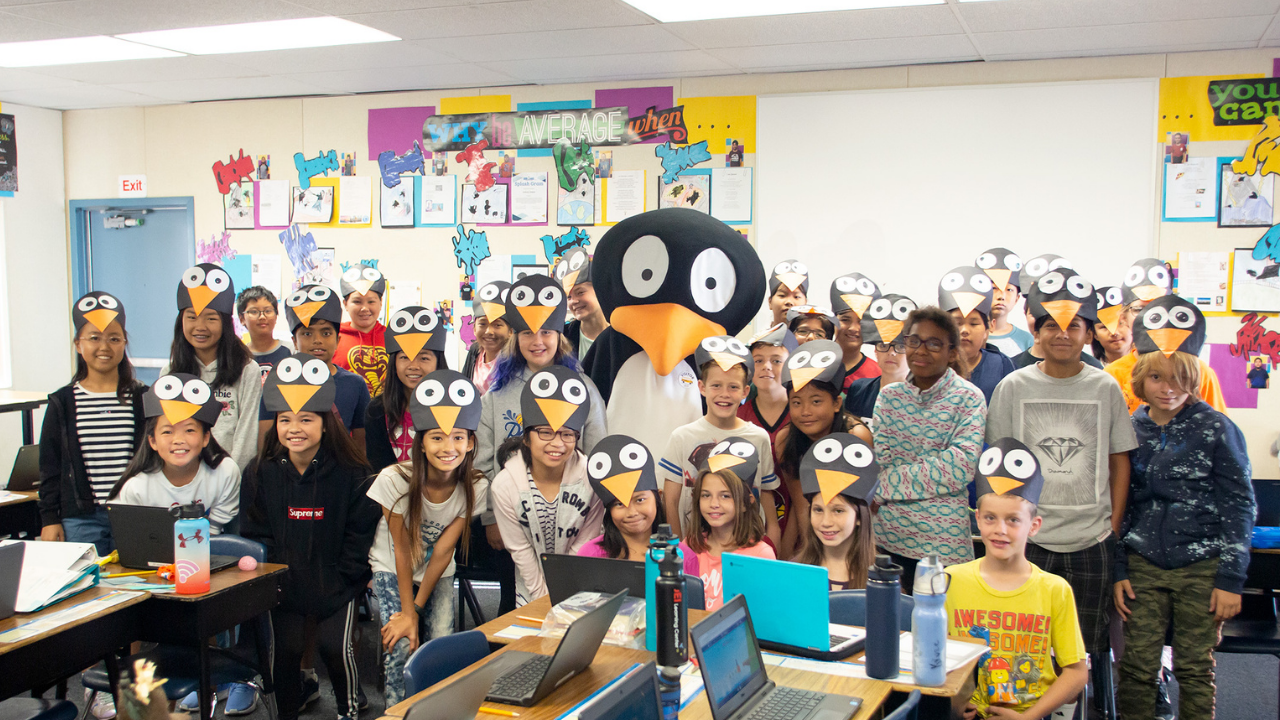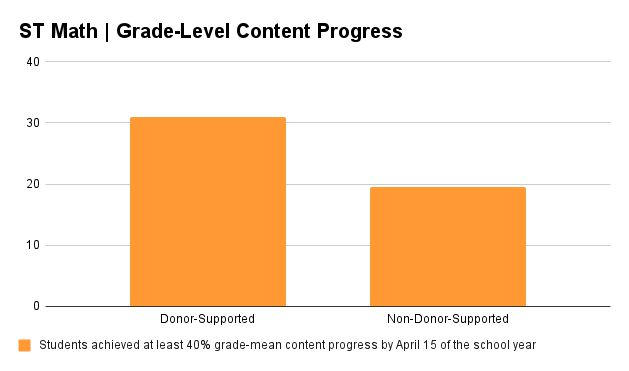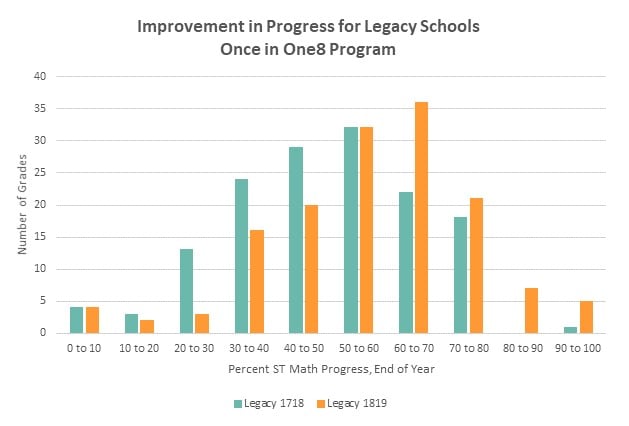
How do MIND’s philanthropic and strategic partners help students get more out of our ST Math program?
Across the country, our social impact partners are having a positive impact on students that we serve together. Of the more than 1.7 million students currently using ST Math, more than 20% of those students have access to the program with the help of funding from our partners.

In addition to providing access to our program, many of our partners are also funding additional support for implementation, which can lead to more time on the program for students, more math content coverage, and greater math proficiency gains.
MIND recently conducted a study of grades 3-5 of ST Math schools across the country that had used ST Math for 1-2 years. This treatment group of schools included ST Math schools that were donor-supported, and those that were not. The treatment group was compared to a control group of randomly selected non-ST Math schools with similar demographics and baseline math proficiency levels. For the two-year period studied, ST Math schools outperformed non-ST Math schools in terms of overall proficiency growth. The study additionally explored differences between donor and non-donor-supported ST Math schools.
The results showed that over the two-year period, donor-supported schools had a higher level of engagement with the ST Math program. For grade-level enrollment, there was a higher percentage of donor-supported schools in which at least 85% of students were using ST Math.
.png?width=629&name=ST%20Math%20_%20Grade-Level%20Student%20Enrollment%20(1).png)
When it came to program progress, donor-supported schools fared better as well. For the two-year period, donor-supported schools were more likely to reach at least 40% progress thorough grade-level content by April 15th of the school year.

The results of the study suggest that having donor support can get schools off to a stronger start with the ST Math program, and raises some interesting questions for future research about why that may be the case.
In Massachusetts, MIND has partnered with the One8 Foundation and their Mass STEM Hub team to not only provide access to our ST Math program, but also multiple layers of implementation support. The model has proven to be very effective, and has demonstrated the positive impact a partnership can have on schools that have already been using ST Math.
The Massachusetts schools that were using ST Math prior to the One8 partnership saw remarkable improvements in program usage when they began receiving additional implementation support. Average progress through the program went up 8% for legacy schools, and the impact was greater for schools completing 50% or more of the program content. So, even schools that already have access to ST Math can benefit from the additional implementation support that donor-funding can help provide. Donor support can help schools start strong, finish strong, and get more out of the program.
So, even schools that already have access to ST Math can benefit from the additional implementation support that donor-funding can help provide. Donor support can help schools start strong, finish strong, and get more out of the program.
There are multiple ways we see donor involvement helping increase engagement with the ST Math program:
JiJi’s first stop is to drop by PL presented by @ErinCurtin10! JiJi is so excited to meet new friends @LeeAcademyPilot! @STMath @STMath #STMathMA pic.twitter.com/fFAfC5sUK7
— Elizabeth Birie (@MissBirie) September 7, 2021
MIND Research Institute will continue to study the impact of donor-funded programs and implementation support, as we build partnerships in states and communities across the country. This research is helping us develop scalable models of educational programming and support that involve the entire student ecosystem of home, school, and community.
If you would like to talk with us about how we could have a greater impact in the communities you serve, you can reach out to our social impact team here.
Podcast: From meeting the Moment to Foundational Change
How Union Hill School is Empowering Problem Solvers in Massachusetts
Podcast: The EdTech Genome Project: Talking Implementation with Elizabeth Birie

Brian LeTendre was the Director of Impact Advancement at MIND Research Institute. In addition to building thought leadership and brand awareness for MIND, Brian worked cross-functionally internally and externally to amplify MIND's social impact and accelerate our mission. He is an author, podcaster and avid gamer.
Comment